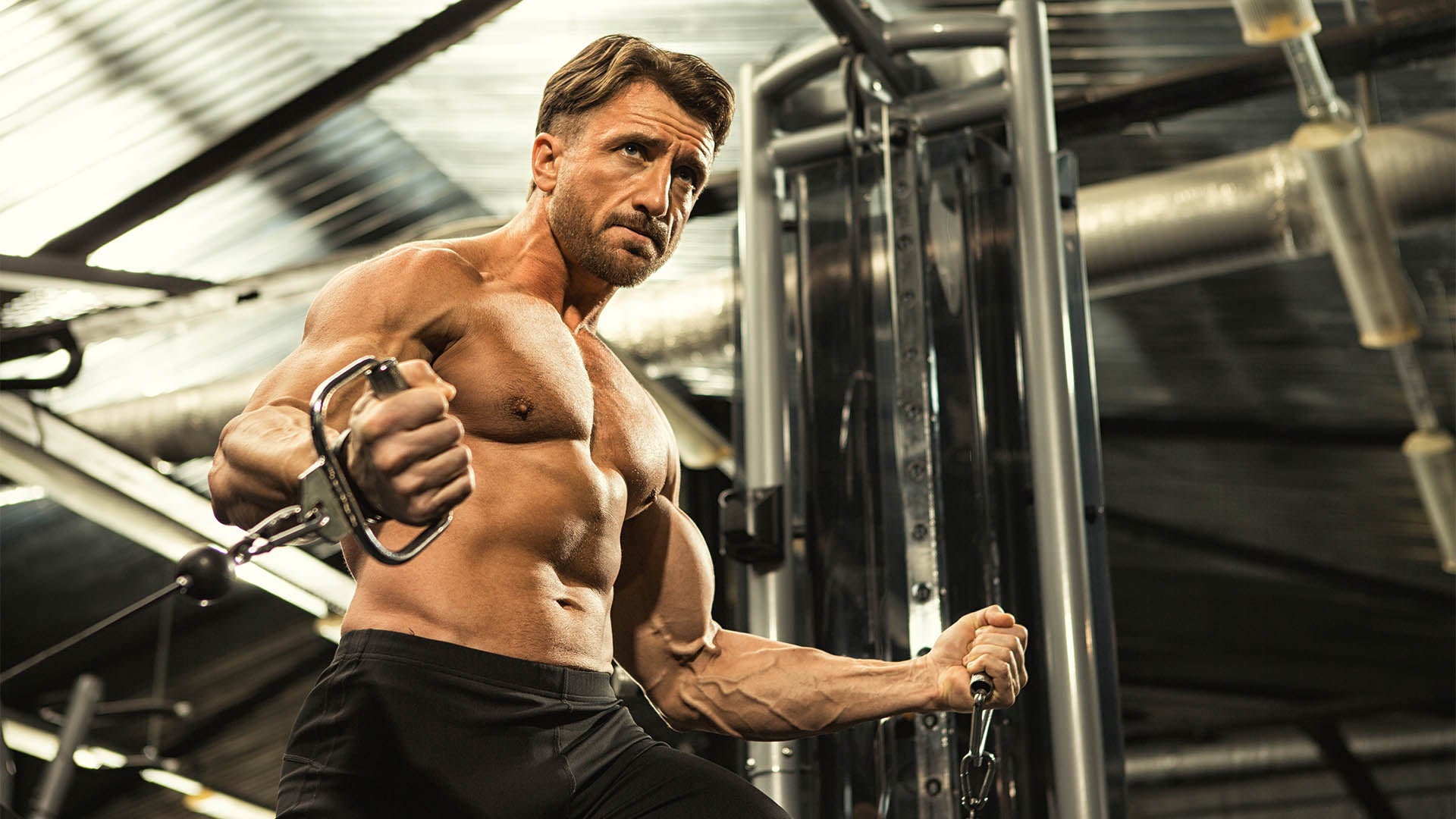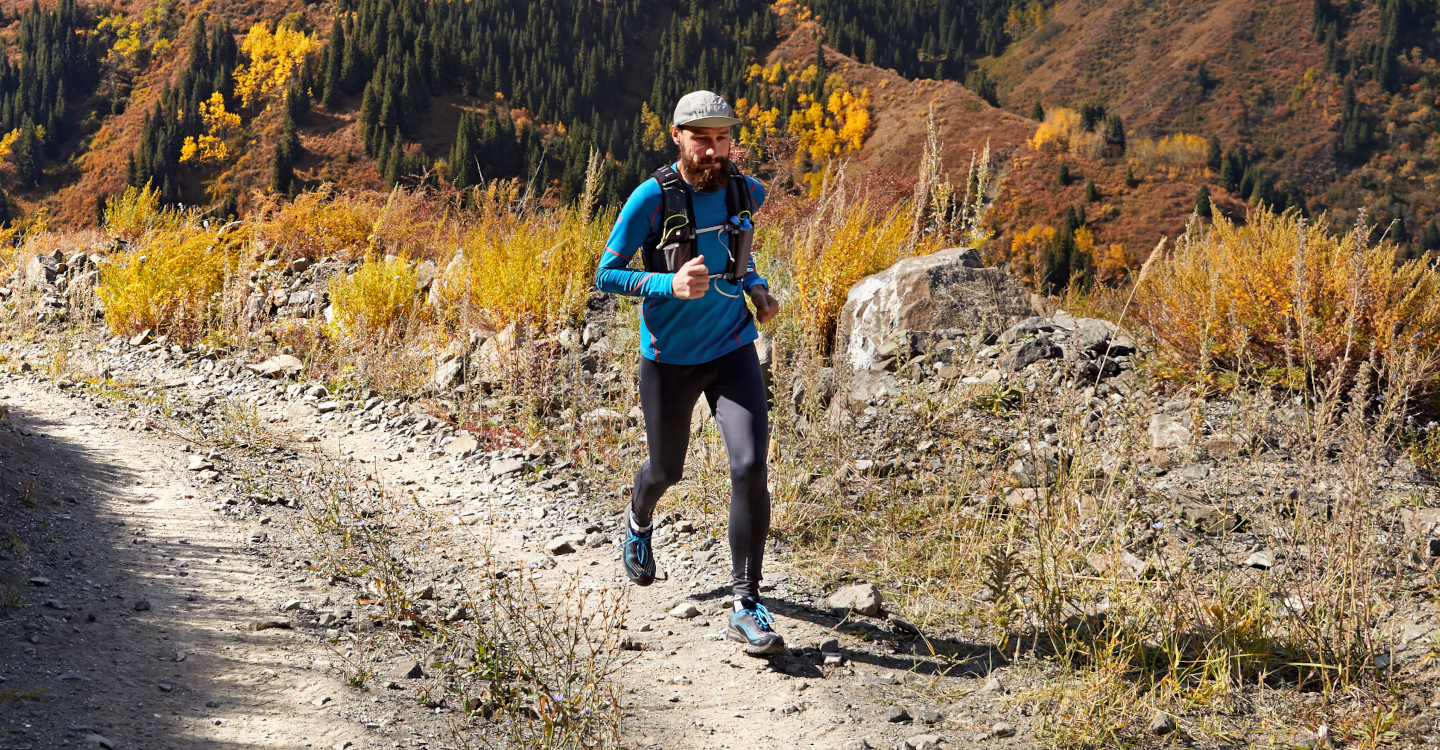Grab your cheatsheet |
So you’ve hit your 40s, and your life is either coming together at last or starting to fray at the seams.
Doubts are beginning to creep in as to whether or not you can exercise and maintain your physique as you used to in your younger years.
Can you build and keep a great body in your later years?
Of course, one thing you must do to have any chance of it happening is to learn from your past mistakes and put your old-age wisdom into practice.
Why is it harder to build muscle over 40?
The bottom line is that you’re not the spring chicken you once were, and it’s not so easy to get away with abusing your body as you did in your younger years.
For one thing, injuries will take much longer to clear up than they did (especially the ones you used to “train through”), and you need to work smarter rather than harder. When you tear muscles to make them stronger, they will take longer to repair, so it’s not about what “can’t be done”; it’s about adapting to ensure your muscle-building works the same way it used to.
You’ll also find that you tire more readily. When you used to feel you could stay in the gym all day long, nowadays, your body will tell you much sooner that it’s ready to hit the shower. More rest periods will be required, but that doesn’t mean you can’t achieve the desired results. You have to move the goalposts a bit.
There are three great ways to improve your muscle mass:
- Functional strength training includes deadlifts, squats, bench presses, overhead presses, cleans, and pull-ups. These will keep your muscles and joints strong, help develop your physique evenly and help prevent undertraining specific areas of your body.
- CrossFit is fantastic for strength training, gaining muscle and functionality, cardio, balance and coordination.
- Bodybuilding: Dumbbells and machines are great for building muscle at any age. How you use them to obtain results will differ depending on your age. Don't underestimate the power of lifting weights.
How can you increase muscle and stop losing muscle growth?
It’s not all doom and gloom; it’s still possible to build muscle and bulk up post-40 (it just might not come as easily as it once did).
Work smarter, not harder
As you get older, you’ll notice that lifting heavy weights may cause aches and pains in your knees, wrists, elbows, and shoulders. If you keep training and ignore them, the chances are they will get worse and could lead to an injury or two.
Instead of going for gold and reaching for the heavier weights, try lifting less but doing more reps and sets. This way, you’ll not overdo it and risk a setback; you’ll also be able to do more without burnout.
In addition, lift slowly, as this will have the same effect as a heavier weight lifted more quickly. Use moderate weights and around 70 to 80 reps per muscle group weekly.
Focus on Form
Instead of piling on the weights at the gym, find a lift you can manage reasonably comfortably and focus on technique. Keep at it with the same weight until you can comfortably move up to the next level.
It’s tempting to try and move up to the next weight before you are ready.

Not an option when you’re over 40 due to the injury risk, so do it with strength and dignity. You can, of course, increase the reps. Focus on quality, not quantity.
Watch what you’re eating.
You don’t have to get too tied up about this, but you must take in extra protein as your muscles need extra help to repair. Protein is also essential for recovery. Ensure you’re eating plenty of fruit and veg to get a decent amount of vitamins and minerals into your system.
Cholesterol is also another issue for some people over the age of 40. To help combat “high cholesterol,” your diet should be rich in healthy fats, which have been shown to help increase good cholesterol levels and decrease bad Cholesterol.
Take in plenty of water to ensure you don’t dehydrate. You don’t want to give your body any excuse to complain; keep it happy.
Take it easy
Protein alone won’t be able to take care of your recovery; you’ll need to play a part too, especially if you are training regularly. Don’t overdo your training; always ensure that you take at least one day off per week to allow your body to repair.

Muscles that are ripped and not allowed time to repair will eventually become injuries, and injuries take longer to repair the older you get. One day off per week is an easy sacrifice to make to ensure you are in it for the long game.
What about supplements?
Before training, it’s a good idea also to use a pre-workout supplement. Getting yourself to the starting line doesn’t get easier with age, and a decent pre-workout supplement will give you that added energy boost to get you to the gym in a workout-ready state. This means that rather than feeling tired, lethargic and unmotivated, you’ll feel physically and mentally energized.
We’ve mentioned protein in your diet, but it will undoubtedly increase your chances if you can supplement it with protein powder.
As mentioned before, your muscles will take longer to repair as you age, so boosting your protein intake will help speed up this process.
A high-quality multivitamin is also recommended, as this will help you get all the nutrients you might be missing from your diet.
Changes in your lifestyle
If you’re serious about building muscle after 40, you’ll need to give your body all the TLC you can. This means ditching, or at least cutting down on, bad habits. These include smoking, drinking and late nights.
How to build muscle over 40
The trick to building muscle after 40 is to adapt your training. Train smarter, not harder, and you’ll make the gains you’re looking for.
One of the main areas you should focus on is giving your body all it needs to cope with the stresses and demands of muscle building. You need to ensure you are always working with your body and not against it. This may mean ditching or cutting back on junk food, drinking or smoking.
Make sure you give your diet an overview to ensure you are getting all of the nutrients your body will need, and use supplements to boost your energy and help to repair torn muscles.
Functional training, bodybuilding and cross-fit are three significant areas to concentrate on. You can still lift weights, you just need to adapt the way you do it.
And don’t forget to rest! Take it easy- you’ve got this!
Related Article: How To Bulk Up



